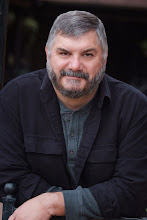Today begins our first day in Washington D.C. so it was appropriate that we started our conversations on the current crisis in the Sudan.
Meeting with Save Darfur

We took the Metro from American University to the L Street offices of Save Darfur where we met with Catherine Wagner - Student Outreach Coordinator, Coby Rudolph – National Outreach Coordinator, and Niemat Ahmadi – Darfuri Liason Officer and a refugee from the violence in Darfur.
For background of the crisis in Darfur, please review my notes from Day Six of the Institute.
The meeting began with Neimat giving us an update on the continuing situation in Darfur and the problems escalating in the refugee camps in Chad.
Niemat Ahmadi
Darfuri Liason Officer - Save Darfur
The key issue discussed in this meeting was the lack of political will by the United States to intervene in Darfur. In 2004, Colin Powell, then serving as the US Secretary of State, speaking before the US Senate Foreign Relations Committee stated:
"We concluded that genocide has been committed in Darfur and that the government of Sudan and the Janjaweed bear responsibility and genocide may still be occurring,"
Since then little has been done to intervene in the continuing genocide.
Save Darfur has identified five initiatives necessary to establish a lasting and just peace in all of Sudan and in the region that need U.S. support:
• Ending the violence against civilians;
• Facilitating adequate and unhindered humanitarian aid;
• Establishing conditions for the safe and voluntary return of displaced people to their homes;
• Promoting the long-term sustainable development of Darfur; and
• Holding the perpetrators accountable.
In July 2007, UNAMID was authorized by Security Council resolution 1769 as a 26,000 member peacekeeping force to help protect the people of Darfur.
UNAMID’s core mandate is the protection of civilians, as well as contributing to security for humanitarian assistance, monitoring and verifying implementation of agreements, assisting an inclusive political process, contributing to the promotion of human rights and rule of law, and monitoring and reporting on the situation along the borders with Chad and the CAR.
UNAMID deployment is a critical step towards ending the tragedy in Sudan. But even after its authorization, the UNAMID force has not been given appropriate resources to fulfill its humanitarian mission.
For Example: No nation has stepped forward to provide any of the 24 helicopters that everyone agrees are essential for UNAMID to be successful.
The UNAMID force requires three Medium Utility Helicopter Wings and one Light Tactical Helicopter Wing (totaling 18 transport and six tactical helicopters, with associated troops) to operate effectively across the Darfur region, and to move the supplies and equipment necessary to carry out its mandate.
NATO countries among them have 18,000 helicopters at their disposal.
U.S. intervention in Darfur does not require military action. What is needed for UNAMID’s success is funding and logistical support, a strengthening of sanctions against the Sudanese Government, and consistent diplomatic action
We wrapped up our session with Save Darfur discussing educational strategies/programs available including Dollars for Darfur as well as lesson plans from National Geographic’s Xpeditions program and the Genocide Intervention Network.


No comments:
Post a Comment